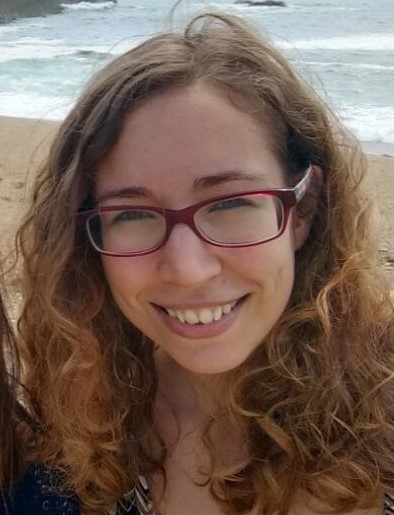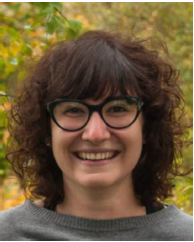2020 FG in E-health and welfare Workshop FG
Organizers

Sergio Escalera
Computer Vision Center (UAB) and University of Barcelona, Spain
sergio.escalera.guerrero@gmail.com
Sergio Escalera is Full Professor at the Department of Mathematics and Informatics, Universitat de Barcelona, where he is the head of the Informatics degree. He is ICREA Academia. He leads the Human Pose Recovery and Behavior Analysis Group. He is Distinguished Professor at Aalborg University. He is vice-president of ChaLearn Challenges in Machine Learning, leading ChaLearn Looking at People events. He is also Fellow of the ELLIS European Laboratory for Learning and Intelligent Systems working within the Human-centric Machine Learning program. He participated in several international funded projects and received an Amazon Research Award. He has published more than 300 research papers and received a CVPR best paper award nominee and a CVPR outstanding reviewer award.

Cristina Palmero
Computer Vision Center (UAB) and University of Barcelona, Spain
crpalmec7@alumnes.ub.edu
Cristina Palmero received her Bachelor's degree in Audiovisual Telecommunication Systems Engineering in 2011, obtaining the 2010 Best Bachelor Thesis Award about accessibility and labor integration of people with disabilities. In 2014, she received an M.S. degree in Artificial Intelligence from the Polytechnic University of Catalonia and a partial M.S. degree in Computer Vision from the Autonomous University of Barcelona, Spain. That same year, she was also awarded with a Marie Curie Early Stage Training (ESR) Fellowship for a 3-year program within the ITN iCARE (improving Children’s Auditory REhabilitation). As a computer vision and machine learning researcher, she has worked on several projects devoted to physical rehabilitation, active aging and independent living, as well as face-to-face group and dyadic interaction. She is currently a PhD student at Universitat de Barcelona, Spain, focusing on automatic gaze estimation with remote cameras, and a member of the Human Pose Recovery and Behavior Analysis group (HuPBA). She is also a member of the H2020 EMPATHIC project, which focuses on building empathic and personalized virtual coaches for the elderly . Her main research interests include multi-modal human behavior analysis and social signal processing.

Maria Ines Torres
University of the Basque Country (UPV/EHU) and SPIN RG, Spain
manes.torres@ehu.es
Maria Inés Torres received her PhD in Physics from the University of the Basque Country in 1990, including an internship at the Centre National d'Études des Télécommunications in Lanion (France) in 1988. She was also a visiting researcher at the Polytechnic University of Valencia (Spain) during the years 1991 and 1992. She has been a member of the board of the Spanish Association of Pattern Recognition and Image, which is a member of the International Association of Pattern Recognition (IAPR), from 1995 to 2008. She is currently a Full Professor of Computer Science at the University of the Basque Country where and held several academic management positions. She founded the Pattern Recognition and Speech Technology research group in 1990, which she has been leading since then. She was a visiting Faculty at the Language Technologies Institute in Carnegie Mellon University in 2012, then a visitor in 2013. She was also a visiting Professor at the University of California granted by the Fulbright program. She has published numerous papers in journals and international conferences and edited three books. She has lead many research projects most of them funded by the National Science Agency in Spain. Also led research under contract with technical centers and companies. Additionally, she has got a large experience in evaluating research and academic at local, national and international level. She has conducted research related to speech technologies: automatic speech recognition and understanding, language identification, machine translation, specific processing of Basque language as well as to acquisition and generation of language resources. Currently her research interests focus on statistical approaches to deal with spoken dialog systems, being also interested in learning from human interaction to generate artificial interaction. She is also aimed at identifying emotions in speech and at detecting emotional language in social networks. She is now the coordinator of the H2020 EMPATHIC project (http://www.empathic-project.eu) and participates in the H2020-MSCA- RISE MENHIR action.

Anna Esposito
Behaving Cognitive System Lab, Department of Psychology, Università della Campania “Luigi Vanvitelli, Italy
iiass.annaesp@tin.it
Anna Esposito received her “Laurea Degree” summa cum laude in Information Technology and Computer Science from the Università di Salerno in 1989 with a thesis on: The Behavior and Learning of a Deterministic Neural Net (Complex System, 6(6), 507-517, 1992) and a PhD Degree in Applied Mathematics and Computer Science from the Università di Napoli “Federico II” in 1995. Her PhD thesis on: Vowel Height and Consonantal Voicing Effects: Data from Italian (Phonetica, 59(4), 197-231, 2002) was developed at Massachusett Institute of Technology (MIT), Research Laboratory of Electronics, under the supervision of professor Kenneth N Stevens. Anna is currently Associate Professor at the Department of Psychology, UVA. Her teaching/research interests include Cognitive and Algorithmic Issues of Multimodal Communication, Human Machine Emotional Interaction, Emotions, Cognitive Economy, and Decision Making. She authored 190+ peer reviewed publications in international journals, books, and conference proceedings. She edited/co-edited 28+ books/conference proceedings in collaboration with Italian, EU and overseas colleagues. She guest edited several journal special issues, among those the International Journal on Artificial Intelligence Tools (IJAIT, 2017), Journal on Multimodal User Interfaces (2015), The Information Society Journal (2015), Intelligent Decision Technologies (2014), Cognitive Computation (2014, 2012). Anna has been general chair and/or co-chair of 50+ international events organized as conferences and conference special sessions, among those IEEE-ICTAI 2015. She has been recently doctoral chair for FG2017 and FG2019, co-chair of an Interspeech 2019 Special Session and challenge chair for ICMI 2019.

Alexa Mosegui
Computer Vision Center (UAB) and University of Barcelona, Spain
amosegui@cvc.uab.es
Alexa Moseguí Saladié obtained her Bachelor degree in Audiovisual Telecommunication Systems Engineering in 2016 with a thesis on: Research and development of a tool for the visualization and analysis of moving objects, while doing an internship in the Image Processing and Computer Vision group in Universitat Pompeu Fabra (UPF). In 2016, she was awarded with an EU-funded scholarship to obtain her M. Sc. degree in Color and Spectral Imaging (COSI) as part of an international ERASMUS Mundus Joint Master Degree programme (EMJMD) studying in three different universities over Europe: Université Jean Monnet Saint-Etienne (France), Universidad de Granada (Spain) and Norges teknisk-naturvitenskapelige universitet (Norway). Her master thesis was conducted in Fraunhofer Institute for Computer Graphics Research (Darmstadt, Germany) in the biometrics department on: Creating face morphing attacks with Generative Adversarial Networks. Thanks to this research she received the Best Master Thesis award of Fraunhofer IGD and the Visual Computing groups of TU Darmstadt. In 2018, she obtained her COSI M. Sc.degree diploma and a partial M. Sc. degree in Applied Computer Science by NTNU. She is currently working in the Human Pose Recovery and Behavior Analysis (HuPBA) group in Universitat de Barcelona working in a European project called EMPHATIC which aims to create an emphatic and personalized virtual coach to help elderly people to live independently. She is also doing research in dyadic interaction and affective computing.
News
Coronavirus information.
FG2020 Posponed
Dear FG community,
IEEE has been monitoring the developing Coronavirus outbreak.
The safety and well-being of all conference participants is our priority. After studying and evaluating the announcements, guidance, and news released by relevant national departments, we are sorry to announce that IEEE FG 2020, scheduled to be held 18-22th May/Buenos Aires will be postponed to a later date.
We have tentatively rescheduled FG2020 for 16 to 20 November. We remain committed to hosting IEEE FG 2020 in Buenos Aires. In the unfortunate case that that proves impossible, we are considering a virtual conference. The conference proceedings and registration will be delayed. We will report back to you about the proceedings once more is known.
Again, we apologize for any inconvenience this has caused and please contact info@fg2020.org
Regards,
FG 2020 chairs